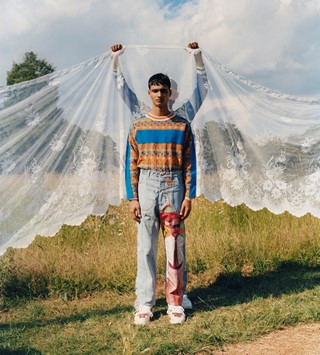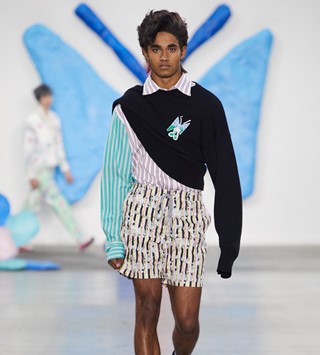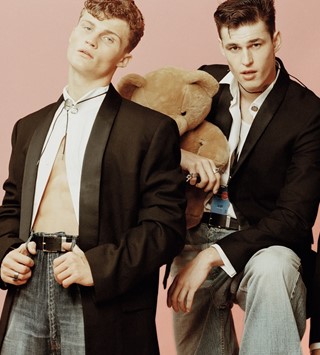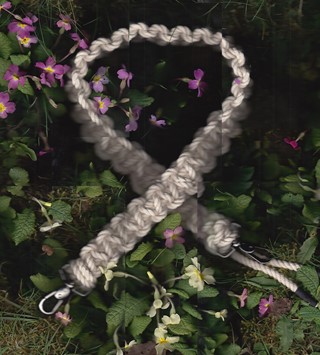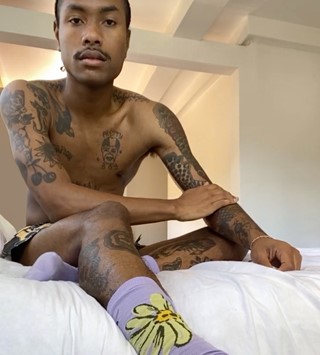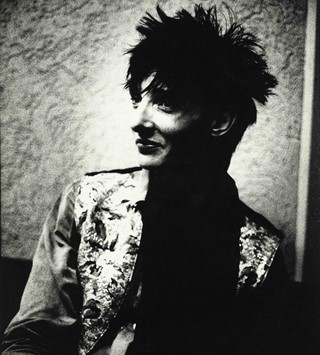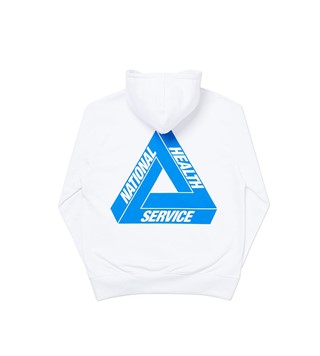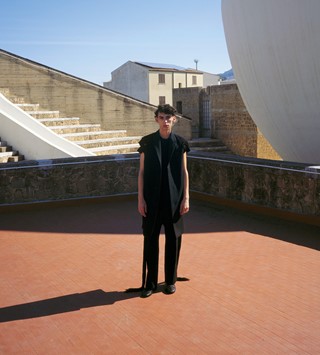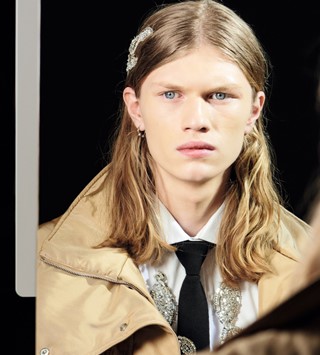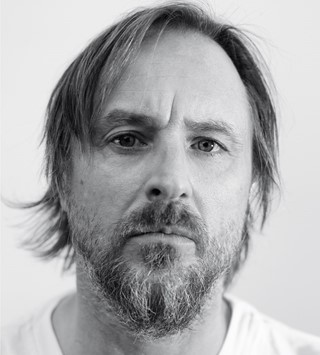The Lagos-born designer discusses the rise of African fashion and his role within it – plus, he shares his thoughts on the appropriation debate
- TextHynam Kendall
Lagos-born designer Kenneth Ize (pronounced “ee-zay”) launched his eponymous label in Nigeria in 2013. It was a bold and “immediate” move; he had only just graduated from the University of Applied Arts in Vienna, where he studied design under Bernhard Willhelm. “I just wanted it right then!” he remembers. “I wanted to have my own brand as soon as I found my aesthetic.” Ize presented an impressive S/S14 show at Lagos Fashion Week, in which unisex garments constructed using traditional African practices told a rich narrative of a diverse culture [“largely personal stories expressed through clothes”]. The reviews were lauding, but what followed was a two-year break. In this time, Ize returned to the University of Applied Arts, where he studied his master’s under Hussein Chalayan. Upon graduating again, Ize returned with a bold S/S16 collection which, like the one before it, prioritised artisanal practices passed down from generation to generation. “I would rather research into how to make everything sustainable,” he explains. “How to do a weave differently… mine is a practical research, not just looking for pretty things for a moodboard. I couldn’t do moodboards...” Again, Ize received industry acclaim for his show, reviews heralding the same celebration of traditional African craft techniques that was becoming his signature. But what was different this time, though, was the industry itself. In only those two short years between Ize’s collections, the exponentially larger African fashion industry had gone global.
Now, three years later, that scene is even more internationally relevant than ever. With a showroom in Paris for S/S19, a slot at Arise Fashion Week in Lagos, and stockists in Vienna, Switzerland and Nigeria (where the label is placed alongside Dries Van Noten and Céline), Ize is among a spate of Nigerian designers at the forefront of this African fashion boom. Here, Ize discusses the rise of African fashion, and his role within it.
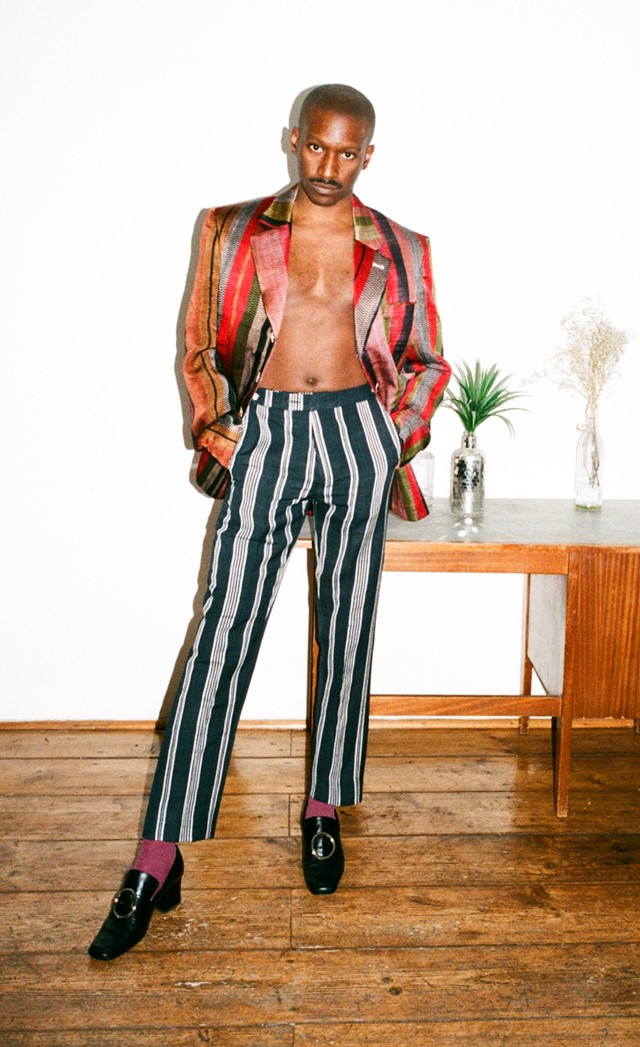
How do you define luxury?
KI: To me, luxury means something that is carefully made – because think about it, that’s how this all starts. It all starts with the making. I say when I’m making my own fabric, that that’s when the magic happens! I offer [my customers] a fabric that takes three days to make, when we start making it we have no idea what it is going to turn out to be, but we take our time to find out what it will become. I’ll work three yarns together trying out new ways with old techniques until we get it right, because I’m not just interested in making something pretty, it has to be personal too. What we are doing is not mass product, and because of this, it has an identity. I believe that in 20 years, the pieces will still last and will still be desirable and can be worn still, or passed on – the value continues. That is luxury to me. The sustainability of craft, the lasting value in clothes.
International brands often appropriate and use elements of African fashion. Do you think only African designers should be able to do this?
KI: I feel like everyone should be free to do whatever they want to do, actually. But what I want to know is – where is it coming from? Why are they doing it? Have they acquired knowledge about what it is that they are doing? I think that’s really what matters, more than the debate about appropriation.
For example, I am a big fan of the African brand WAFFLESNCREAM, who bring international street culture to the African fashion scene. They take the culture from outside and put their spin on it and present it in an African way. I think it’s brilliant to bring that international urban aesthetic and feeling to the African community, as long as it is done in a way that is true to the designers.
A lot of Africans refer to their culture in their work, and we use the clothes as an expression of our identity. It is honest in that way, which is why people like it and why they like to buy [into our brands]. If international designers reference our culture and it is also coming from an honest place, that is what matters more to me. The honesty.
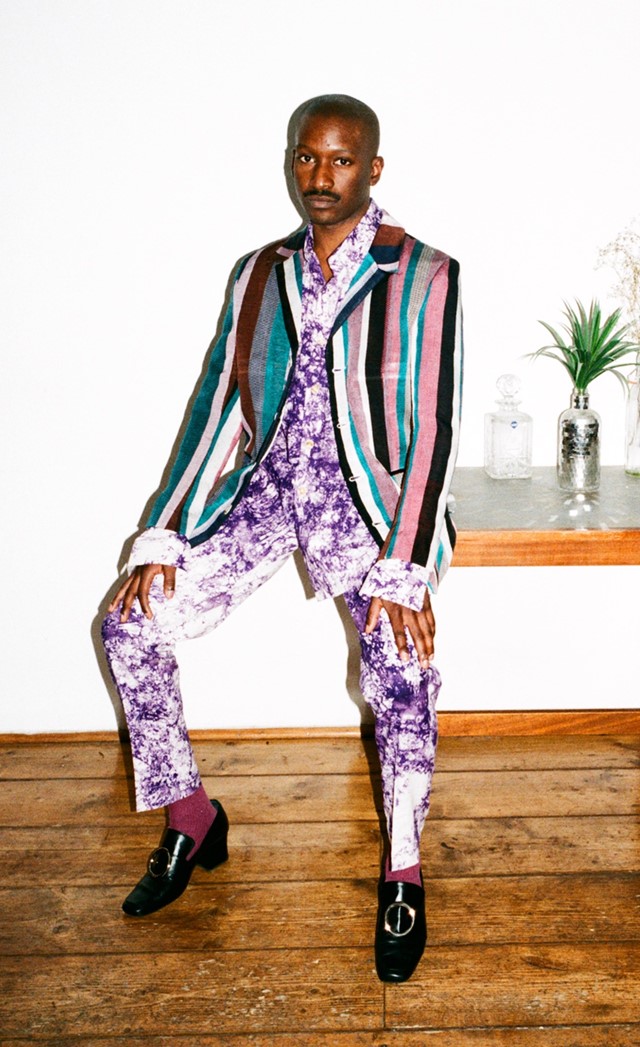
How has the fashion industry in Africa changed since you started out?
KI: The Nigerian fashion scene is definitely growing – I would use the word “spicy” to describe it. With demand comes growth, and what I’ve seen is more demand. When I started the brand, the business of fashion in Africa was not new, but it was a challenge. People were cautious – can I wear this? Is this OK to buy into? But, in time, people are becoming more comfortable and more relaxed about experimenting.
The thing is, Africa is a developing continent. I believe there is a lot of money that can be made within it. And people want new products, new things all the time because it is growing and growing fast. And there is investment here. It’s exciting right now to be a part of the scene. In Nigeria, we have production companies, textile companies where we can get silks and other fabrics, so you can see how it is adapting to accommodate the growing industry. Right now, [African fashion] is definitely on the fashion map because we keep creating – it’s happening. You can’t deny it. And we are providing money, which is proof of this.
How do you see the local industry changing even further?
KI: We already have a lot of quality coming out of Africa, so it’s about further introducing the African luxury product to the wider world. It’s not necessarily what we are doing that will change the industry further, it’s where we now take it and how we take it there. And it will happen, we are getting great exposure right now, especially with the help of the internet.
Practically, for brands like me to expand we need international stockists. I’m visiting the States this summer to meet with buyers and stylists, and having a Paris showroom was an important step. Right now I have a base in the UK – with friends and family – but that’s not sustainable as the business grows. We need to branch out.
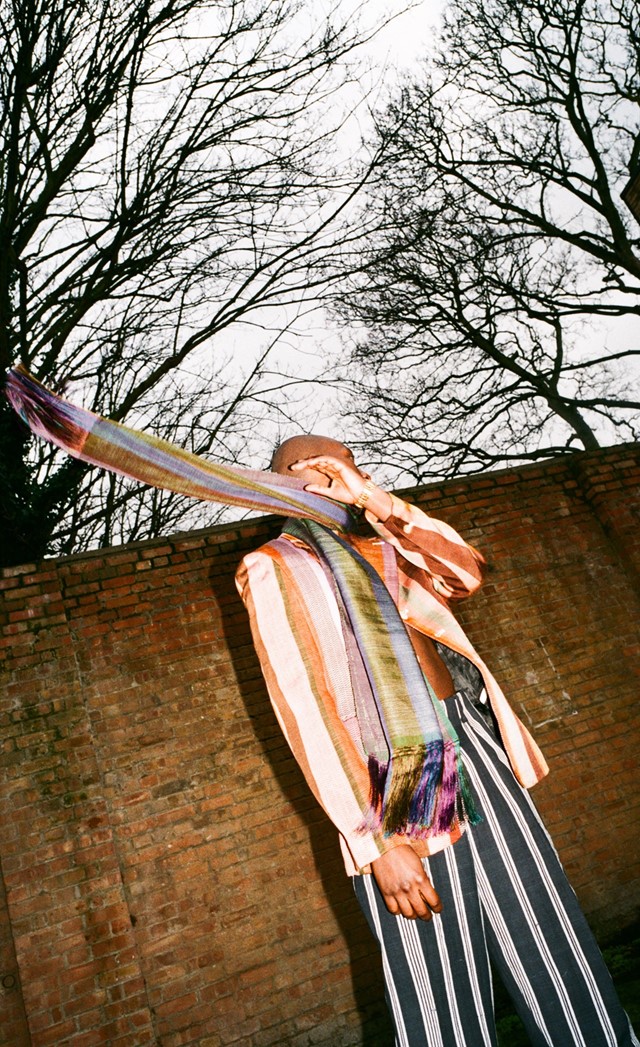
Are there reputable fashion institutes in Nigeria? Could you have studied there as opposed to Vienna?
KI: That is a tough question. I can’t really honestly know about the institutes here, having not studied here, but I have just got two interns who trained in a fashion school in Yaba, a suburb in Lagos, and they are at a really good standard of pattern-making. So I can say from my experience that the local institutes are producing talent, but maybe not enough to meet the demand. Education is definitely something we need in Africa for more progress within the industry.
What are the benefits of working in a younger fashion scene?
KI: There are positives, definitely. You can experiment more, try all the things you want to and go about things in different and new ways, because in a way you have less to lose. You are freer. If you’re in an industry that is very established, you are looking for freedom, but it is a smaller freedom. In a young industry like ours, you can be truly free.

